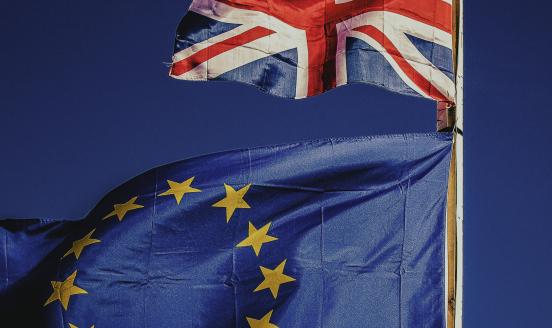Brexit and competition policy in Europe
If the UK leaves the EU without any agreement in place, this could change the way that competition law is applied. It could also make antitrust cases
The impact of Brexit on competition policy depends on what kind of agreement is secured between the EU and the UK.
One option could be a European Economic Area (EEA) agreement, which the EU has signed with Iceland, Lichtenstein and Norway. The EEA agreement establishes a dynamic and homogeneous European Economic Area, based on common rules and equal conditions of competition. It would mean that that two separate legal systems would be applied in parallel within the EEA.
Common laws are applicable whenever trade between EU member states is affected. In merger cases the European Commission has exclusive jurisdiction in the EEA to deal with all cases that have a community dimension.
Leaving the EU and joining EEA would not have a major impact on how competition policy is applied in the UK and the EU. However, the UK would lose its ability to directly influence future developments of EU competition law.
A second option would be a series of bilateral trade agreements that allow partial access to the single market under conditions that do not require the full adoption of EU competition law, as in Switzerland.
But the Swiss example illustrates the close collaboration of competition authorities that such trade agreements involve. A cooperation agreement on competition matters between the EU and Switzerland was signed in 2014, providing a framework for coordination on enforcement of competition, and strengthening cooperation in the fight against breaches of competition law. The European Commission and the Swiss Competition Commission have also agreed to notify each other of concrete enforcement activities affecting each other’s major interests.
A third option is full Brexit[1], an exit from the EU without any agreement in place. This would drive Britain out of all EU treaties and may change the way that competition law is applied. I will focus on its potential impact in the rest of this article.
Current UK competition rules are largely modeled on the equivalent EU rules. It is unlikely that there will be a major change in the near future, as the UK is expected to continue relying on the Competition Act of 1998, given the traditional British view that free markets and undistorted competition are the best way to ensure efficient allocation of resources.
But after a full Brexit, UK competition law would no longer have to conform to the EU system. With EU law no longer being superior, any decisions taken in Brussels would no longer have a binding effect in the UK. Enforcement of competition law in the UK would be the responsibility of the Competition and Markets Authority (CMA), which only applies UK law.
Two parallel systems of enforcement would end the one stop shop principle for EU merger regulation and other antitrust offences, under which each investigation was carried out by a single authority. If there is a separation, in merger cases where firms have considerable market share both in the UK and in one or more EU member states, the CMA would open an investigation simultaneously and independently from EU competition authorities. The same applies for other antitrust cases when they concern both the UK and the EU, like the ones that fall into the Article 101 or Article 102 of the Treaty on the Functioning of the European Union (TFEU).
This duplication would increase administrative costs for companies. It could make the investigation process take longer, which would make merger cases more difficult. It would also raise uncertainty, and risk conflicting views and arguments between the two authorities.
If, for example, the CMA clears a proposed merger, but, the European Commission finds that it undermines competition in the EU market, then the merging firms have two options. Either they merge, but exit the EU market as they do not have permission to operate as a merged entity in the EU area, or they do not merge and they continue their operations as two separate entities in both markets. The same applies if EU authorities impose specific remedies that need to be fulfilled.
The double investigation would likely mean that some offenders would have to pay any cartel fines twice. It may also make leniency programmes less effective. Such programmes have proven an effective tool to fight cartels. Under leniency programmes, the whistleblower-firm receives amnesty and does not pay the antitrust fine imposed by the authority on other cartel participants. This means it has an incentive to come forward and report the existence of the cartel.
But, if there are separate competition authorities, a whistleblower from a cartel operating both in the UK and the EU may not have incentives to report its existence to the one authority, if that means that the cartel will also be revealed to the other authority, which could run a separate prosecution and apply fines even to that firm. In this case, full amnesty could only be achieved if the whistleblower applies for leniency in both competition policy regimes (another costly duplication that may be put in place after Brexit).
In private antitrust enforcement and in particular in private damages cases, the UK is often the jurisdiction of choice by claimants (Oxera 2016) - according to EU law, claimants can often choose the jurisdiction for their damage claims. It reportedly has several advantages in comparison to the EU (Flett, 2016). Many damage claims in the UK follow on from Commission decisions and any associated hearings at EU courts.
If there is a full Brexit, there will be some ambiguity about whether such decisions apply to UK courts. It may become necessary to bring two separate cases (one for the UK, and one for the EU) to claim damages for the European market. That could substantially increase the costs of bringing the case and may discourage the claimants to proceed with cases on damages.
Full Brexit is likely to mean that the UK would be outside the state aid control system. The UK government would have greater liberty to give aid to UK businesses. It would also have more freedom to grant preferential tax treatment to international companies.
But, on the other hand, the UK would lose influence on the state aid decisions implemented in EU member states, which may concern firms that are also active in the UK market. Developed coordination between the two sides would be necessary to avoid state-aid policies that distort competition and introduce inefficiencies in the product market. Alternatively, EU authorities may choose to limit market access to companies that have received significant state aid.
Brexit would lead to the departure of the UK from the European Competition Network, and the end of the UK’s role in the development of EU competition law and policy. Over time, Britain’s absence could probably lead to a policy shift away from the free market and undistorted competition principle, as other more conservative voices that tend towards protectionism (i.e. of national champions) may become more prominent in the debate.
If the UK leaves the EEA, it would have major implications for competition law and the way it is applied. Close collaboration would be necessary to maintain efficient and well-functioning markets. Competition authorities on both sides would have to coordinate to ensure that the effects of Brexit on competition are minimised.
Since the EU and US competition authorities cooperate on issues of mutual interest. We can be optimistic that if the UK leaves the EEA altogether, such coordination mechanisms could be implemented between the UK and the EU in the future.
[1] The term full Brexit is used in the same spirit as in Richard Graig (2016) The potential impact of Brexit on UK competition law"



